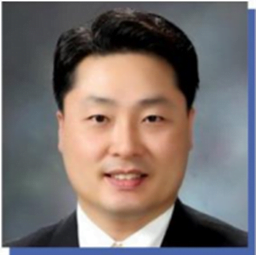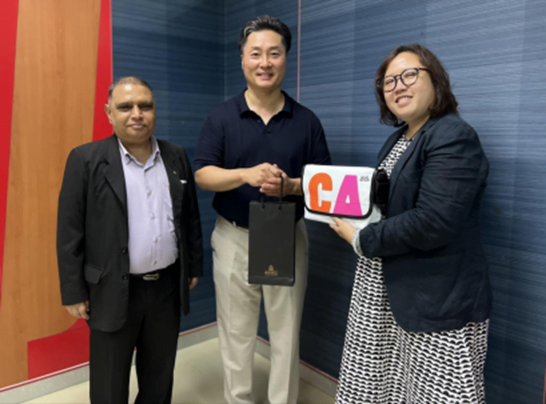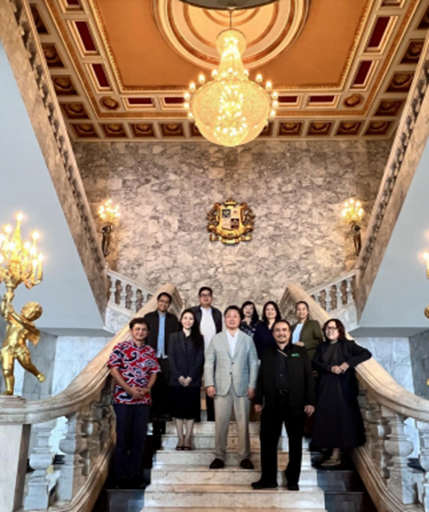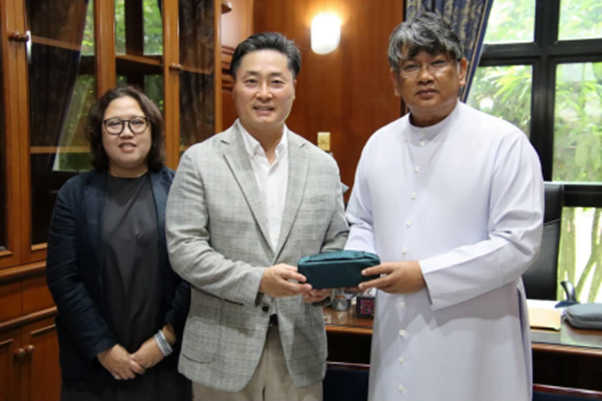
Prof. Kitai Kim
Professor and Associate Dean of Global Relations
Hannam University
Acuca FMS Recipient 2022-2023
I had the honor and privilege to participate in the ACUCA Faculty Mobility Scheme (FMS) at the Albert Laurence School of Communication Arts (ALSCA) at Assumption University (AU) in Bangkok, Thailand. My objectives were three-fold. First, as ACUCA Secretary General, I wanted to share information with the AU international office regarding the newly created Micro Degree Program (MDP) as well as other ACUCA related issues. Second, as Associate Dean of Global Relations at Hannam University (HNU), I wanted to finalize the Memorandum of Understanding between HNU and AU that was started by Professor Kkonteeneung of AU who participated in the ACUCA FMS at Hannam University earlier this year. Finally, as the chair of the Department of Global Media & Culture at the Linton School of HNU, I wanted to examine the challenges and benefits of “English Medium Instruction (EMI)” as well as benchmark the ALSCA.
My first meeting at AU was with Director Glen Chatelier and Dean Marissa Chantamas. I have known Director Chatelier for a few years as he was the Officer Designate when AU was an ACUCA Executive Committee member. I wanted to ask for his and AU’s assistance with the ACUCA MDP program in regard to student participation and faculty involvement. As all courses at AU are taught in English, AU students and faculty are excellent candidates to participate in the MDP. I really looked forward to visiting AU to spend time with Director Chatelier as he is well known in Asia as a seasoned international relations veteran who is a role model for many faculty and staff. Spending time with him is always edifying.

During my benchmarking of the ALSCA, I wanted to examine if there were areas where our two colleges could collaborate in regard to student and faculty exchanges. I was very impressed with the ALSCA’s facilities and program. The school has excellent media studios as well as state-of-the-art technical equipment for media production of all kinds. The programs that the ALSCA offers students are also impressive and designed to help students enter the workforce immediately upon graduation. It was apparent that the ALSCA has far greater facilities for media production whereas the Linton School focuses primarily on media and cultural studies. As such, there is the opportunity for mutual exchange where students from both universities can benefit from the strengths of each university. Dean Marissa Chantamas expressed great interest in having AU students attend HNU’s Korean Studies Summer Program (KSSP) in order to provide her students with the opportunity to experience the Korean language and culture. Our meeting resulted in an agreement for HNU to create a summer program specifically designed for AU students and their interests.

Both HNU and AU provide classes in English. A major difference is that AU provides all courses at the university in English whereas HNU provides classes taught in English only at the Linton School. As I am interested in English medium instruction (EMI), I wanted to benchmark the ALSCA regarding this subject. Dean Chantamas and Professor Suriya shared their personal experiences as well as their students’ experiences and performance related to EMI. I was surprised to discover that both universities share almost identical issues and challenges of offering EMI courses to non-native speakers of English. We discussed this issue in depth and provided suggestions to one another on how best to deal with the challenges of EMI instruction.
The best part of the FMS program was the opportunity to share valuable personal time with Rev. Bro. Dr. Verayuth Boonparm (Vice President for Academic Affairs), Dr. Vindhai Cocracul (Advisor for Academic Affairs), Prof. Marissa Chantamas (Dean of the ALSCA), Professor Suriya (Associate Dean of ALSCA), Professor Khonteeneung ALSCA), and Director Glen Chatelier (The Office of International Affairs). I was able to talk, dine, shop, and travel together with them and got to know them very well. They took time from their extremely busy schedules to spend valuable time with me for which I am incredibly grateful. I’m not sure if I can ever repay their hospitality. I am happy to say that I can now call them friends as well as colleagues. This, I believe, is the best aspect of the FMS; creating special relationships with friends in other Asian countries that hopefully will last a lifetime.

